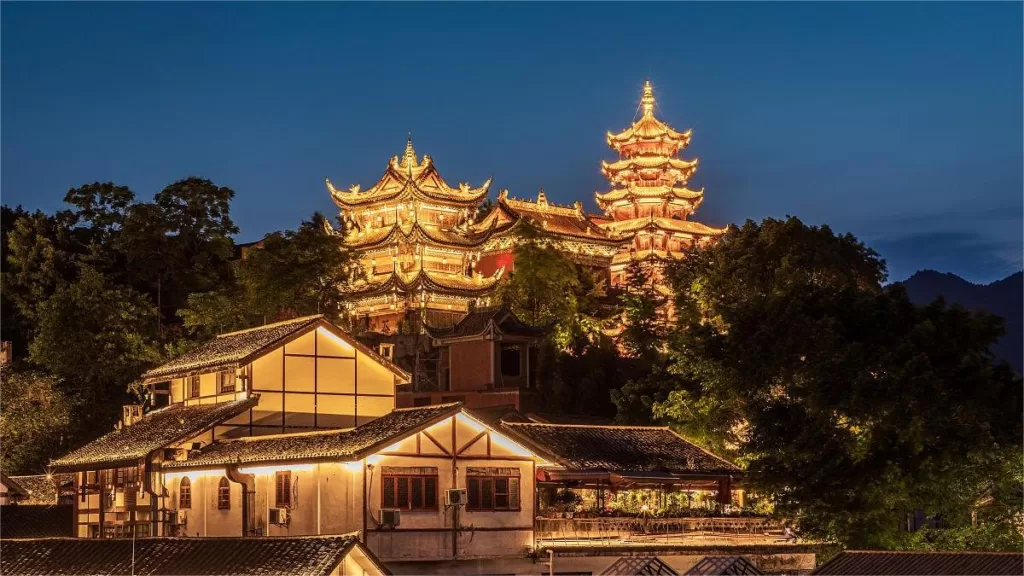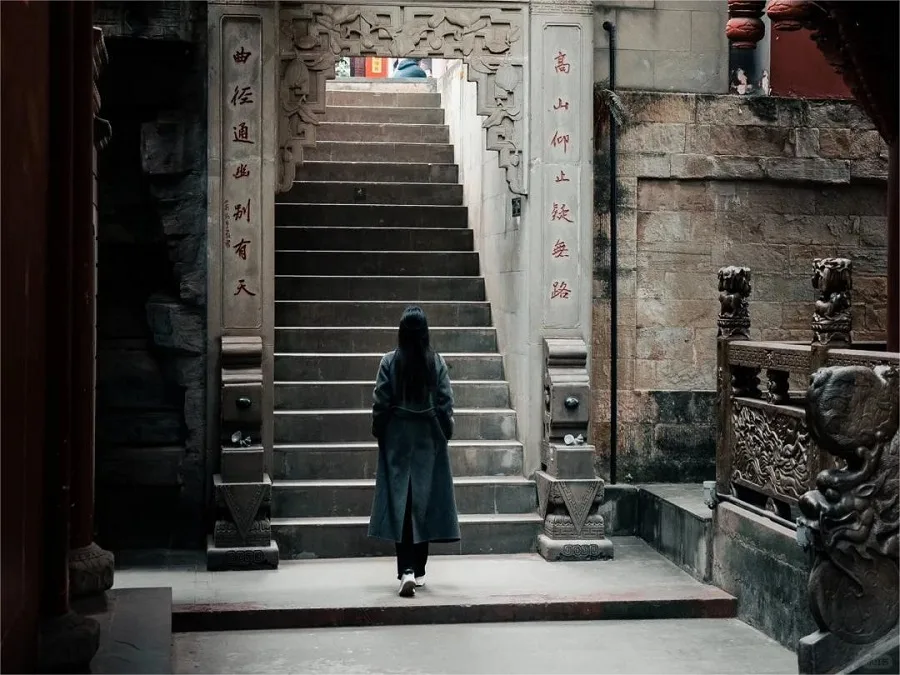Templo Ciqikou Baolun - Precio de la entrada, horarios de apertura, transporte y puntos destacados


Ciqikou Baolun Temple (磁器口宝轮寺), located in the heart of Chongqing, China, is a place steeped in history and folklore. While some claim it was founded by Weichi Gong during the Tang Dynasty, others believe it dates back to the Western Wei period, between 535 and 556 AD. The temple’s name, Baolun, translates to “Precious Wheel,” symbolizing an essential Buddhist concept. This ancient place of worship holds a unique charm, not only for its rich history but also for the legends that surround it.
The most intriguing story associated with this temple is the connection to Emperor Zhu Yunwen of the Ming Dynasty. When Zhu Yunwen, also known as Jianwen Emperor, was forced to abdicate by his uncle, Zhu Di, who later became the Ming Emperor known as the Chengzu Emperor, he embarked on a journey that eventually brought him to Ciqikou. Here, he is said to have sought refuge and lived in seclusion, giving rise to the temple’s alternate name, “Longyin Temple,” meaning “Temple of the Hidden Dragon.”
Información básica
| Duración estimada de la visita | 0,5 - 1 hora |
| Precio del billete | 15 RMB |
| Horario de apertura | 10.00 – 17.00 |
Ubicación y transporte
Baolun Temple is situated opposite to the Guojie Building (过街楼) in the bustling and historic Ciqikou Ancient Town, known for its lively streets and traditional architecture. The temple enjoys a prime position with the imposing Baiyan Mountain at its back and the majestic Jialing River before it. To get there, you can choose the following ways:
Autobús: Take bus 202, 209, 215, 237, 261, 501, 503, 504, 553, 805, or 843, get off at Jinbi Street Stop (金碧街站), and walk about 600 meters to the east to reach the temple.
Metro: The closest metro station to Baolun Temple is Ciqikou (磁器口) on line 1. After getting out of the station from Exit 1, walk about 800 meters to the northeast to reach the temple.
Highlights of Baolun Temple
Bygone Glory

Once upon a time, Ciqikou Baolun Temple stood amid lush greenery, with majestic pagodas and pavilions surrounded by a dense forest. Birds filled the air with their songs, and towering ancient pine and cypress trees provided shade for the temple grounds. The temple boasted a total of 16 buildings and housed 372 Buddha statues. The sacred aura of the temple extended from the Jingkou to the nearby Liziba, offering a spiritual retreat to all who visited. Unfortunately, many of these structures were destroyed during the turbulence of the late Ming Dynasty and the bombings of World War II in Chongqing.
Sala principal

The most remarkable structure to have survived is the main hall, “Da Xiong Bao Dian.” Within this hall resides an imposing statue of Sakyamuni Buddha, believed to have been crafted during the mid-Qing Dynasty. This Buddha radiates a serene and benevolent countenance, with a slight upward curve at the corners of the mouth, seated in a majestic and contemplative posture. The statue exudes an air of majesty, conveying a profound sense of compassion, limitless wisdom, and an unwavering dedication to spreading the teachings of Buddhism. For those who enter the hall to pay their respects, a sense of reverence, admiration, and devotion naturally wells up within them.
Legends about a Secret Passage

A local legend adds an intriguing layer to the temple’s history by suggesting the existence of a secret passage beneath the ancient Buddha statue in the main hall. According to this story, the passage leads to a hidden granary, a mystical chamber where the temple’s monks once retrieved rice and grain. However, a greedy and selfish monk’s insatiable desire led him to disrupt the flow of rice from this hidden chamber. The rice ceased to pour forth, leaving the monks hungry.
Another captivating tale suggests that the hidden chamber beneath the Great Buddha statue connects to the Jialing River. It is believed that if one were to release a duck into this chamber, it would emerge from the river, downstream from Ciqikou, in a matter of moments. While this legend may sound fantastical, it only adds to the mystique surrounding the temple.
Vlog about Baolun Temple
Lugares de interés en la zona urbana de Chongqing, Attractions in Shapingba District Chongqing, Lugares históricos de Chongqing